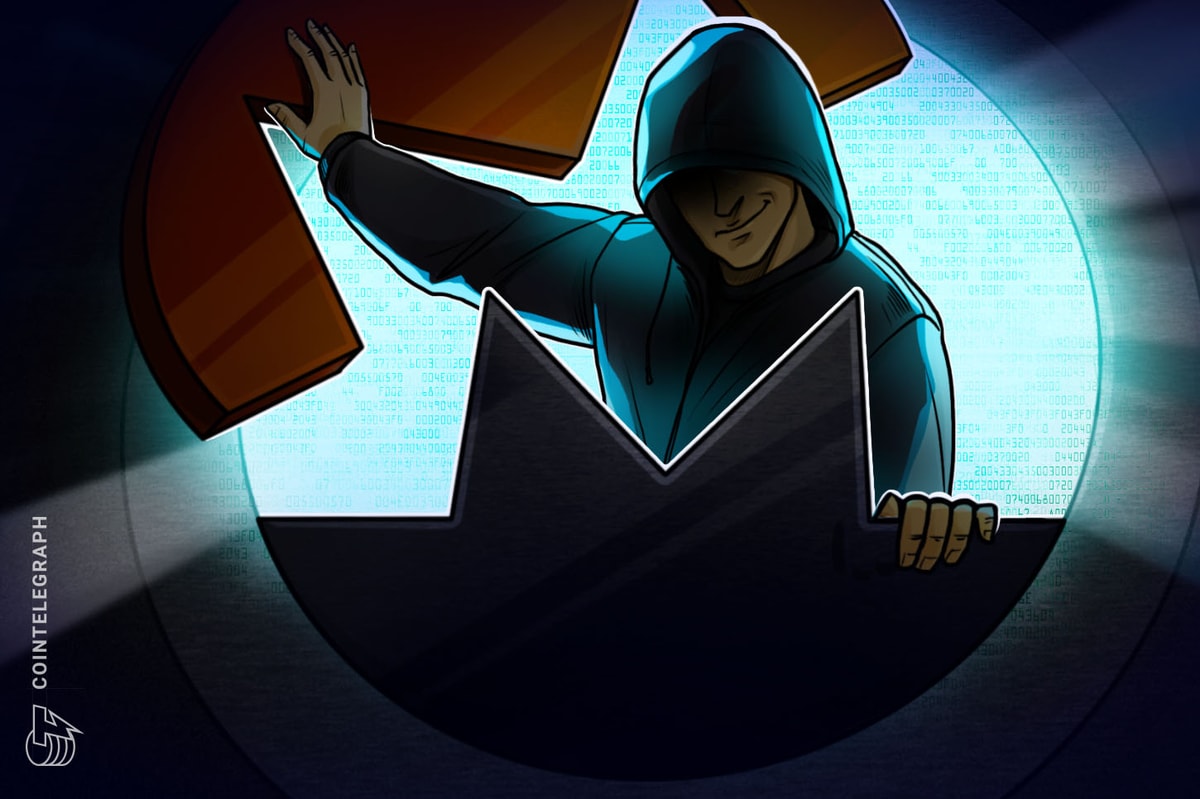Monero 51% Takeover Disrupted by Alleged DDoS Attack on Qubic Mining Pool
A shocking turn of events has unfolded in the Monero community, as the Qubic mining pool's attempt to take over the network was disrupted by an alleged Distributed Denial-of-Service (DDoS) attack. The attack, allegedly linked to the Monero community, has caused significant disruption to the pool's operations, leaving its effectiveness in question.
The situation began when Sergey Ivancheglo, who claims responsibility for the takeover attempt, revealed on Sunday that his Qubic mining pool was under a DDoS attack. The attack, which resulted from the pool's attempts to dominate the Monero network, caused its hashrate to plummet from 2.6 gigahashes per second to just 0.8 GH/s.
Ivancheglo claimed that the attackers had presumed control over a Monero-mining malware network, allowing them to conduct the attack with "zero cost". He stated that his team had implemented protections to mitigate the disruption, saying "Let's see what those desperate guys will manage to break this time."
However, Cointelegraph's investigation found that direct queries to the Qubic mining pool returned an average response time of 0.188 seconds across three endpoints, with no dropped requests. This suggests that the pool operated normally at the time of writing.
CoinTelegraph also discovered that MiningPoolStats data showed Qubic as the last mining pool with no hashrate, after it stopped reporting its hashrate on July 30. However, the pool's intermittent mining service claims that its hashrate peaks at 1.6 GH/s when the network's intermittent mining operation switches to Monero.
But Ivancheglo shared his suspicions that XMRig developer Sergei Chernykh had "orchestrated" the DDoS attacks, hinting at a possible link between Chernykh and the attack. In response, Chernykh stated that he publicly discussed plans for a legal solution to protect Monero's anonymity features.
A Look into the Qubic Mining Pool's Takeover Attempt
The Qubic network has been using its hashrate and economic incentives to attempt a takeover of the Monero network. After quickly rising to become the largest mining pool, the community became aware of the openly disclosed plan, causing its market share to decline.
Ivancheglo, who also founded crypto projects NXT and Iota, openly admitted that his operation was attempting a takeover of the Monero network. In an X post, he stated that after gaining control of most of the network's hashrate, his pool would reject blocks mined by other pools, effectively centralizing the network into a single pool.
The Impact on Monero
Monero's emphasis on anonymity and strong focus on privacy have made it a popular choice for transactions on the dark web. However, this also attracts unwanted attention from malicious actors seeking to disrupt its operations.
CoinTelegraph previously reported that Japanese authorities traced Monero and arrested 18 individuals in a $670K laundering case. This highlights the potential risks associated with using Monero for illicit activities.
What's Next for Qubic and Monero?
The outcome of this DDoS attack remains uncertain, but it's clear that the Qubic mining pool's takeover attempt has been disrupted. As the situation unfolds, it will be crucial to monitor the pool's operations and assess its impact on Monero's network.
CoinTelegraph will continue to provide updates on this developing story as more information becomes available. In the meantime, stay tuned for further insights into the world of cryptocurrency and blockchain technology.
